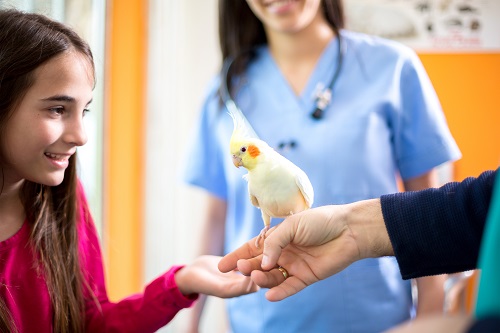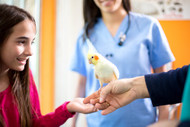What Should Be In Your Parrot's First Aid Box?
Posted by Parrot First Aid, Parrot Health, bird first aid box, What are the signs for the illness in Parrots? on 21/7/2023
This is what should be in your Parrot's first aid box.
Please be advised that supplements are for birds on a poor diet which needs boosting. They are not a first aid item. Also, as a rule you shouldn’t use any two products at the same time, as the birds can overdose on fat soluble vitamins.
We've created a list of things you'll need for your bird first aid box.

Items
F10 Germicidal wound spray with insecticide
F10 Ointment can be used to dress a wound and has healing and antiseptic properties.
Vet Wrap Bandage
Skin/Eye wash
Saline solution/Sterile wipes to clean wounds or wash hands/eyes
Surgical tape, scissors, tweezers, syringe
Paper Towels
Waterproof container
Gloves
Emergency card which contains a local vets information
Powders
Blood powder/Corn Flour also a very important essential item. (Corn flour can be applied to any bleed with pressure to assist it in clotting).
Poly Aid is useful if your Parrot has lost their appetite
Wheeze Eeze can help with respiratory issues
All first aid for birds should just be used when a vet isn’t instantly available, just to stop something getting worse. Please keep in mind that this is only First Aid and cannot be used in place of advice from your Avian vet or an emergency trip to see an Avian specialist.
Avian vet Aidan Raftery said:
"Definitely a good idea to have saline to try to clean wounds and also for the eye if an irritant gets in, plus corn flour to try to stop bleeding from a broken blood feather.
One would have to be very careful bandaging a broken wing. I have seen where a bird has struggled against a bandage causing the end of the broken bone to pierce through its skin.
... "if you have a hypoglycaemic and / or dehydrated bird then any product containing readily available calories and electrolytes will have a positive effect on the bird, sometimes a very dramatic effect."
Avian vet Sheryl Calway said:
"In saying that, corn flour (or any of the commercial blood-stop powders available) are definitely worth keeping handy.
A broken blood feather is one of the true first aid emergencies and if owners can stem the bleeding, the prognosis can be better.
I do also like F10 products, the antiseptic in particular, but probably in any situation where this would be useful, I'd prescribe it rather than expect an owner to already have access to it.
I do use the ointment but again, would prescribe it *if* a bird needed it.
I don’t often apply ointments to feathers as the feathers get clogged up and when preening, the creams get ingested."

